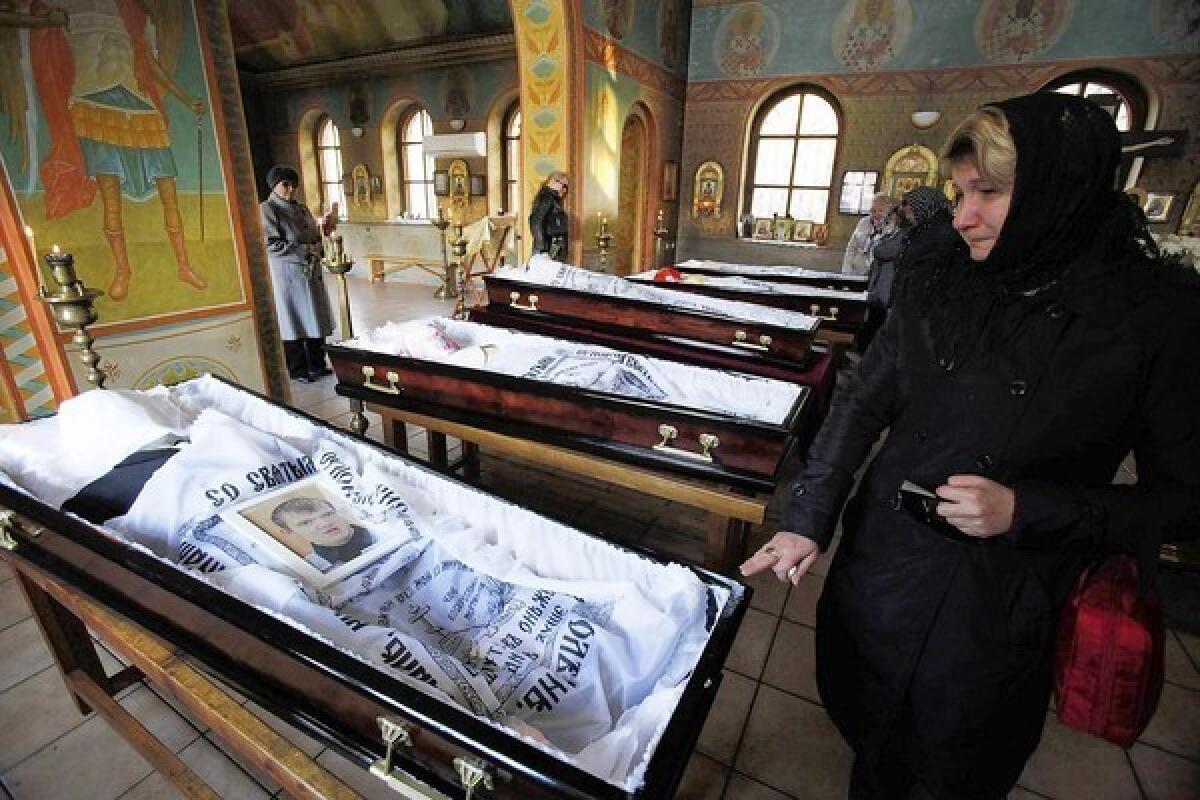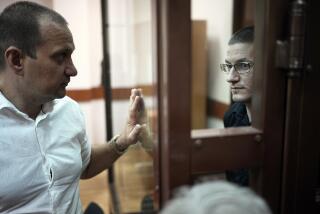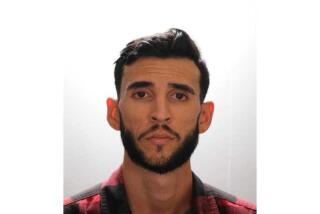Russia prepares to crack down on drunk driving

MOSCOW — The five caskets positioned next to one another in a common grave Wednesday showed the tragic results of another apparent drunk-driving accident in Russia.
The teenage victims, residents of a Moscow institution for mentally handicapped youths, were killed along with two guardians when a car smashed into them as they waited for a bus. The car’s driver, officials said, was intoxicated at the time and had a history of traffic violations, including an arrest for driving under the influence in 2010.
To make matters worse, manslaughter suspect Alexander Maximov, who apparently lost control of his sedan Saturday while traveling at more than 80 mph, showed no remorse. Police said the 30-year-old Maximov, who suffered minor injuries, told them he had been drinking for two days.
“The man must have been dead drunk if conscious at all when the tragic accident happened,” said Maxim Kolotsvetov, spokesman for Moscow Police Department. “His blood sample indicated that he was intoxicated with the equivalent of over two bottles of vodka or whatever he drank that day.”
The case has generated calls for tougher penalties against drunk drivers from government officials including President Vladimir Putin and Prime Minister Dmitry Medvedev. It also has led activists, who have criticized the country’s treatment of drunk driving, speeding, recklessness on the roads and police corruption, to caution against an overreaction that might result in abuse by authorities eager to show they are cracking down.
The ruling United Russia party is reportedly preparing legislation that will introduce severe sanctions against drunk drivers, including fines equivalent to more than $16,000, taking away drivers’ licenses for life and confiscating vehicles. Causing a death of more than one person while driving drunk may soon result in a sentence of life in prison, some legislators said.
Currently, someone convicted of drunk driving may lose his license for up to two years, spend up to 15 days in custody or pay a fine of about $160. Anyone convicted of killing a person while driving drunk faces a maximum of nine years in prison.
“I know it may sound terrible, but these innocent teenagers could have paid with their lives to send a message to the society that we can’t go on like this,” said Yevgeny Gerasimov, a Russian movie star and a United Russia lawmaker who attended the funeral service.
The teenagers killed in the crash were Vladimir Maltsev, 17; Dmitry Uzbekov, 17; Jessika Regush, 15; Anastasia Alexandrova 17; and Viktoria Ivanova, 16; all students of special boarding school No. 7 in southwest Moscow. Officials said the teenagers were born with birth defects and abandoned by their parents early in their lives. Also killed were their 31-year-old instructor, Olga Shirshova, and her 37-year-old husband, Sergei Shirshov, who will be buried Thursday at another cemetery.
Officials said more than 17,000 people had been killed and 165,989 injured in car accidents in Russia so far this year. Among the fatalities, nearly 1,300 occurred in drunk-driving accidents, they said.
Russia, which for years has faced concern about alcohol consumption, has had more than 3 million alcoholics registered with state-run clinics in recent years.
In 1986, then-Soviet leader Mikhail Gorbachev launched a vast anti-alcohol campaign imposing limits on alcohol sales and eradicating vineyards in the south of the country. In response, many Russians resorted to moonshine and drinking other sources of alcohol such as chemical cleansing liquids, which resulted in deaths and sent Gorbachev’s popularity plummeting.
Putin, in televised remarks Tuesday, said it was time for the country to tighten restrictions on drinking and driving.
“The formulas that we have today are not working in our society,” Putin said. “When the gates opened, the gates of freedom, we began to think that all and everything is allowed.”
Several rights activists and opposition politicians said the toughening of sanctions would almost certainly lead to cases of severe punishment for innocent people and boost already rampant corruption in the police ranks through bribery and other measures.
“Whatever sphere of life we seem to be experiencing a problem in, the Kremlin knows only one way to approach it, and that is to toughen up repressive measures, the policy which is leading the country up a blind alley,” Gennady Gudkov, a protest movement leader and a member of the presidium of the Just Russia party, said in an interview.
“These measures will not work, but on the contrary will help to ruin the country from within by feeding corrupt police officers and bureaucrats and leaving the people more and more exposed to injustice.”
Tougher punishment alone will not resolve the problem of Russian alcoholism and drunk driving, said Yevgeny Bryun, director of Moscow Research and Practical Center for Narcology.
“These sanctions,” Bryun said, “will not be productive without a much broader system of monitoring and counseling thousands of motorists suspected of or caught drunk driving to prevent such accidents in the future.”
More to Read
Sign up for Essential California
The most important California stories and recommendations in your inbox every morning.
You may occasionally receive promotional content from the Los Angeles Times.










